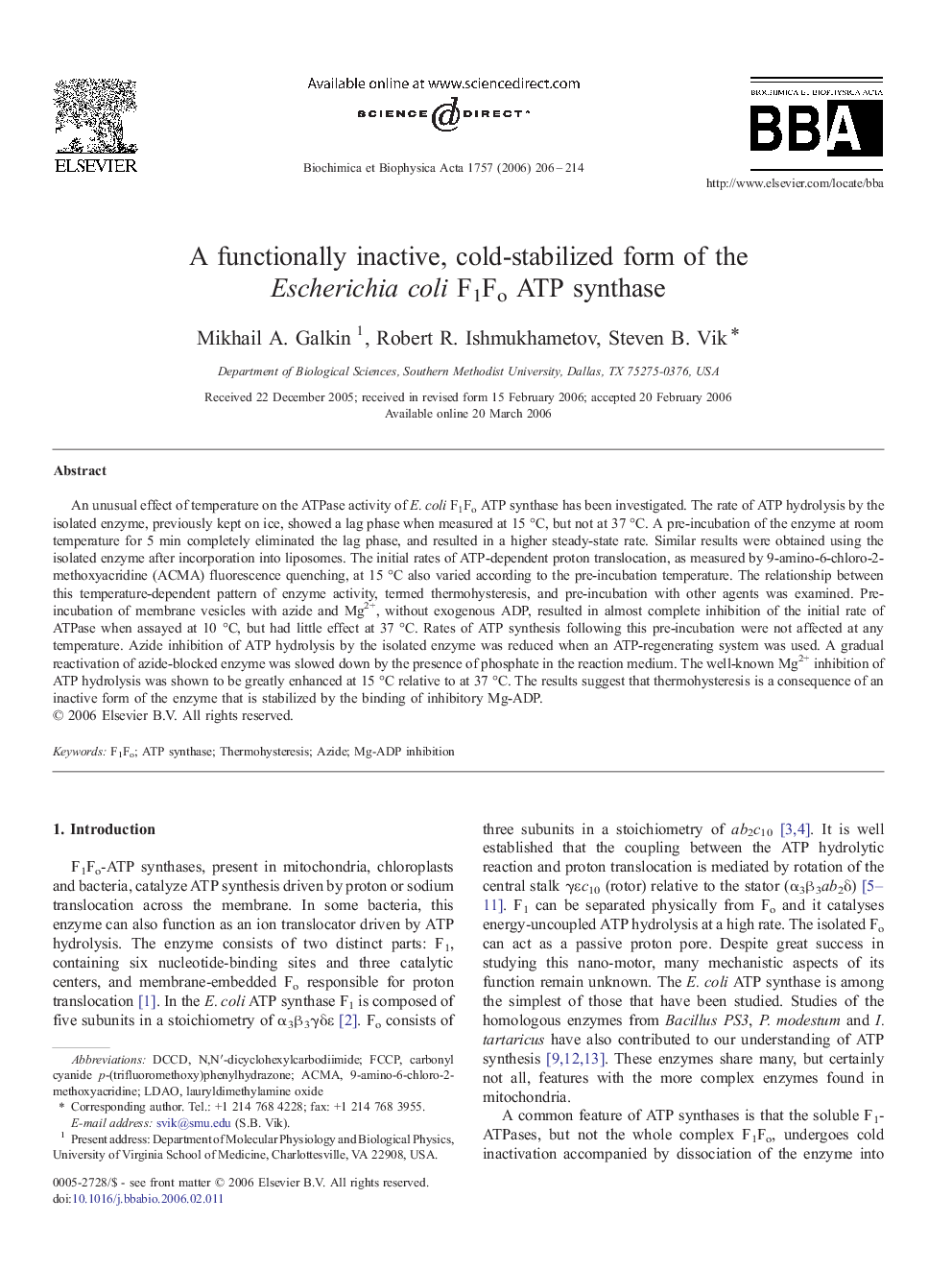| Article ID | Journal | Published Year | Pages | File Type |
|---|---|---|---|---|
| 1943761 | Biochimica et Biophysica Acta (BBA) - Bioenergetics | 2006 | 9 Pages |
An unusual effect of temperature on the ATPase activity of E. coli F1Fo ATP synthase has been investigated. The rate of ATP hydrolysis by the isolated enzyme, previously kept on ice, showed a lag phase when measured at 15 °C, but not at 37 °C. A pre-incubation of the enzyme at room temperature for 5 min completely eliminated the lag phase, and resulted in a higher steady-state rate. Similar results were obtained using the isolated enzyme after incorporation into liposomes. The initial rates of ATP-dependent proton translocation, as measured by 9-amino-6-chloro-2-methoxyacridine (ACMA) fluorescence quenching, at 15 °C also varied according to the pre-incubation temperature. The relationship between this temperature-dependent pattern of enzyme activity, termed thermohysteresis, and pre-incubation with other agents was examined. Pre-incubation of membrane vesicles with azide and Mg2+, without exogenous ADP, resulted in almost complete inhibition of the initial rate of ATPase when assayed at 10 °C, but had little effect at 37 °C. Rates of ATP synthesis following this pre-incubation were not affected at any temperature. Azide inhibition of ATP hydrolysis by the isolated enzyme was reduced when an ATP-regenerating system was used. A gradual reactivation of azide-blocked enzyme was slowed down by the presence of phosphate in the reaction medium. The well-known Mg2+ inhibition of ATP hydrolysis was shown to be greatly enhanced at 15 °C relative to at 37 °C. The results suggest that thermohysteresis is a consequence of an inactive form of the enzyme that is stabilized by the binding of inhibitory Mg-ADP.
